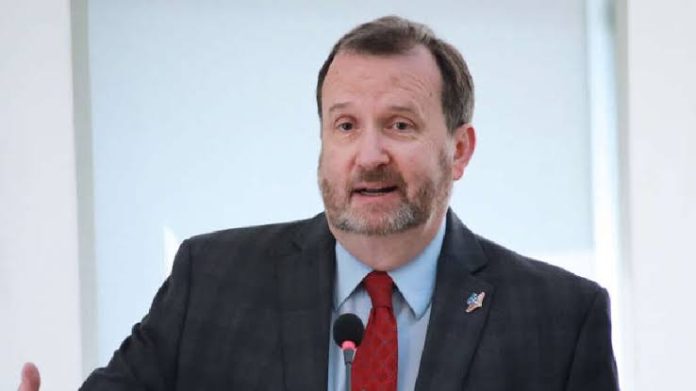News Investigators/ The United States, United Kingdom, Finland, Norway, and Canadian envoys to Nigeria on Thursday congratulated the the West African country and its citizens on the 26 years of democratic governance.
The News Agency of Nigeria (NAN) reports that the expressed their goodwill to Nigeria and its people in a joint statement signed by U.S. Ambassador, Richard Mills; British High Commissioner, Richard Montgomery; Finland Ambassador, Sanna Selin; Norwagian Ambassador, Svein Baera, and Canadian High Commissioner, Pasquale Salvaggio.
According to them, healthy democracies are formed by important ingredients, while free expression has long been a core value of Nigeria’s democracy.
The envoys noted that while marking 25 years of democracy in Nigeria in 2024, President Bola Tinubu underlined that in Nigeria “there must be diverse perspectives and viewpoints.”
“Nigeria’s constitution enshrines the right to freedom of expression, aiming to protect its citizens’ rights and foster a society where people can debate and discuss ideas free from government control.
“This right, a principle of trusting ordinary citizens to have discussion in the virtual public square, remains vital today,” they said.
The five countries’ heads of mission, however, called for the reform of the Cybercrimes Act 2015, as amended in 2024, and cautioned against the law’s negative impact on free expression.
According to them, misuse of the Cybercrimes Act can undermine democratic advancement, civic participation, jeopardise the confidence of investors and risks deterring the innovation needed for economic growth.
“In 2022, the ECOWAS Court of Justice ruled that the Act is not in conformity with the country’s obligations related to freedom of expression under the African Charter on Human and Peoples’ Rights and the International Covenant on Civil and Political Rights.
“The Act, which was originally intended to combat online fraud and cyberterrorism, can be misused as a tool to stifle free expression and undermine democratic engagement.
“This distortion of the law’s original intent can lead to citizens becoming hesitant to speak out, weakening democratic accountability and potentially fuelling distrust in government,” they said.
The envoys, however, welcomed the Minister of Information’s commitment to collaborate with the National Assembly and relevant stakeholders toward reviewing the Act, so that it can protect the values enshrined in Nigeria’s constitution.
They further noted that the implications of amending Act would extended beyond free expression, stressing that Nigeria’s economic future would also depend on its ability to innovate and attract investment in the digital age.
“The Nigerian Communications Commission (NCC) estimates that the country loses 500 million dollars per year to cybercrime. This problem requires a response.
“However, the Cybercrimes Act’s broad language, especially its vague definitions of “false information,” “cyberstalking,” “harassment,” and “insult” leave room for confusion and potential abuse.
“The Cybercrimes Act’s, if misapplied, even in a small number of cases, risks detracting the innovators and entrepreneurs the government wants to invest in Nigeria,” they further admonished.
The ambassadors also urged Nigerian lawmakers to consider reform of the Cybercrimes Act to narrow the definitions of key terms such as “false information,” cyberstalking,” insult,” hatred,” and “harassment.”
“As friends of Nigeria, who share the country’s strong commitment to democratic values, we want Nigeria to realise its potential as a democratic digital powerhouse.
“This will be a difficult balance to strike but is vital for delivering what Nigeria wants — a stable and open democracy, and economic growth underpinned by investment.
“Nigeria is not alone in facing this problem. Democracies across the world are grappling with the ever-evolving challenges and opportunities that the digital world presents,” the envoys added.
NAN


